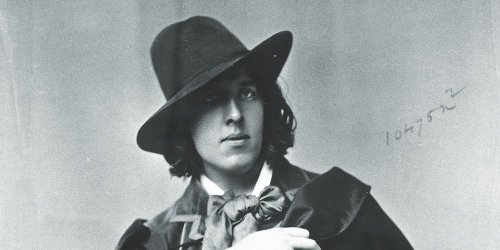 Recent waves were made in the author community by one Faleena Hopkins,an indie author who decided that too many books could be confused with her series, and so trademarked the word “cocky” (though really, a logo version of her title) and proceeded to send out DMCA requests to other authors with the word in their title. The internet has, not surprisingly, reacted with laughter and shock. This really isn’t a word you can copyright, yes? We sorta raise an eyebrow at this attempt to draw attention to her books, given how negative the feedback has been. Does all press truly equal good press? Hopkins isn’t the first author to get heat from the internet. Last summer, debut author project, Handbook for Immortals, was pulled from the NYT Bestsellers List for cheating the system, and in the years following the rise of KDP, several drama storms have been unleashed by authors picking fights with and threatening reviewers, antagonizing other authors, and all manner of other drama. The big dogs aren’t immune either, given recent incidents with Cassandra Clare and Terry Goodkind. The internet and it community is hard to traverse at times, and controversy amongst authors is nothing new. A famous story from the Romantic Period comes from the summer of 1816, when Lord Byron, Percy and Mary Shelley, and John Polidori all ventured into a brutal winter and decided to start one of the most famous writing competitions in history. This story is remembered for Frankenstein and, less so, The Vampyre, but the contest is also known for becoming a stew of drama between the writers. Lord Byron reportedly went through fits and fainting spells that required restitution, and his doctor, Polidori, was so aggressive and toxic- attempting duels and fights with the other members of the party, that Lord Byron, the definition of drama by all accounts, kicked Polidori from the group when they departed. Their drama didn’t cease there, since The Vampyre came from an unfinished fragment of Byron’s writing. Later in 19th century, Edgar Allan Poe would gain a reputation of meanness from the way he reviewed other authors, and Oscar Wilde would continue this tradition in his own biting humor. Authors aren’t kind people, and they certainly aren’t public figures like other creative folk. “Writers aren’t rock stars,” my English 102 professor said, a poet and introvert in his own right, and it’s true- because we’re not. Being a rock star isn’t an extroverted skill; many musicians have poor social skills and bad public image, but a bad public image does not always hurt the musician. A course, rude, or even outright destructive image can be part of a musician’s act, making them much closer to actors and actresses than the writer. There are masks you wear in art, but writers have to where a different kind of mask, since they get to wear all of them at once. When I was a child, I would tell you up front that I wanted to be a circus performer; a horse rider in particular, though I couldn’t really ride a horse. I also wanted to be a ballerina (no ballet lessons to be found), a pop star, an artist, a princess- the like. This was about the time I realized that as a writer, I could be all of these through characters and storytelling. It is through this that the writer finds their inner actor, but that actor, you see, is focused on characters and creation, and not on persona. This, in the most unscientific terms, is likely why writers struggle with online and celebrity personas. There isn’t room for more characters to play. Not only that, but as the age of the internet has shifted into being, more authors have been made to join the social limelight, breaking up the “late-night smoker who writes five books a year” image left by more famous authors with persona, like Stephen King and James Patterson, revealing those of us that aren’t likably stoic, introverted, and fitting of the writer image. There is some discussion to be had on whether or not this benefits the writer: when writers behave badly, it reflects poorly on all of us and, of course, our work and image are better expressed through their books themselves. I wonder if Faleena Hopkins would agree? Whatever comes of bad press for writers, the persona and the author will always be a strange relationship, drawing less from the inner rock star then we’d like. Still, isn’t that unpolished strangeness the thing that makes writers brilliant at their job? Look at Neil Gaiman or Amanda Palmer! It is that nature that allows us to create and embrace a different kind of audience with our honesty, rather than celebrity status. It is that earnestness that matters in the long run, and truly makes the author shine.
0 Comments
|
About MeCaitlin Jones is an author, film editor, and lover of all things Victorian and fantastic. Please check in for information on her upcoming series. Archives
August 2020
|
 RSS Feed
RSS Feed
